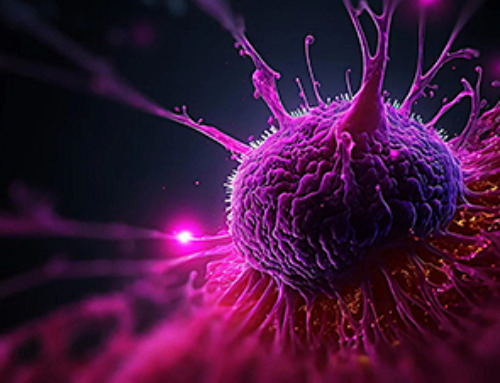You can’t blame your brain for your actions!
Neuroscientists at HSE University have challenged the famous studies that question the free will of our decisions. You can’t shift responsibility for your actions to the brain. The results of the new work were recently published in the journal Neuropsychologia.
Historical Context of the Free Will Debate
The dispute about how much free will people have in making their decisions has been going on for decades. Neuroscientists have joined this discussion thanks to the electroencephalographic (EEG) experiments of Benjamin Libet. In the 1970-1980s, he showed that 0.5–1.5 seconds before conscious awareness of the intention to perform a movement, subjects emit EEG activity that predicts this movement. It turns out that the brain makes a decision and sends readiness potential before a person realizes it, and our actions are nothing more than the result of an unconscious physiological process in the brain.
The results of Libet’s experiments have generated a lot of controversy about free will, and some neurophysiologists have even concluded that it does not exist. Moreover, Libet’s experiment has been repeated using functional magnetic resonance imaging, and it turns out that the decision of the subject can be predicted even 6-10 seconds before their conscious awareness of it.
HSE University’s Take on the Paradigm
The staff of the HSE Institute for Cognitive Neuroscience questioned this experimental paradigm and in their new study confirmed that the time of intention awareness in Libet’s experiments was determined incorrectly. In addition, EEG activity, or the brain signal indicating the readiness of a decision, which was recorded by Benjamin Libet before the decision was made, actually has no direct link to this decision.
In the Libet’s original experiment, the subjects were asked to occasionally bend their wrists and at the same time remember the moment when they felt ready to perform this action. The time of intention awareness was recorded from the words of the subjects themselves: they observed a point that moved along the screen dial, similar to a clock hand, and indicated the position of the point when they felt the desire to bend their hand. The moment of the final decision was determined by the exact reading of the sensor attached to the wrist of the subjects.
The HSE neuroscientists repeated the experiment with two groups of subjects, adding small changes to the task in one of the groups. Using behavioral reports and hypersensitive EEG techniques, the scientists investigated the correlation between the time of intention awareness and the time of final decision. It turned out that the time of awareness can be influenced by experimental procedures: for example, without certain training, the subjects are barely able to determine their intentions, and the traditional Libet paradigm pushes them to the feeling that they can determine the moment of decision-making and intention. Apparently, the instruction itself in the Libet task makes the participants feel that the intention should emerge long before the final decision is made.
In addition, the study confirmed that there is no direct link between the activity of the brain preceding the action and the intention to perform the action. The sense of intention emerged in the subjects at different points in time, whereas the readiness potential was always registered at about the same time. Thus, the readiness potential may reflect the general dynamics of the decision-making process about making a move, but it does not mean that the intention to act has already been generated.
Concluding Thoughts
“Our study highlights the ambiguity of Libet’s research and proves the absence of a direct correlation between the brain signal and decision-making. It appears that the classical Libet paradigm is not suitable for answering the question of whether we have free will while making decisions. We need to come up with a new approach to this extremely interesting scientific puzzle,” says Dmitry Bredikhin, author of the research and junior Research Fellow at the Centre for Cognition & Decision Making.
“Neuroscience tries to answer key questions in our life, including questions of free will and responsibility for our actions. We need to be especially precise in order to draw conclusions that affect our outlook and attitude toward life. Therefore, we tried to understand the predetermination of our decisions and confirmed a number of shortcomings in the famous experiments of Benjamin Libet. This does not mean that we have closed this issue of the illusory nature of our free will, but rather emphasizes that the discussion continues. This might be one of the most interesting questions in modern science, to which we have yet to give a definitive answer,” comments Vasily Klucharev, Project coordinator and leading Research Fellow of the Institute for Cognitive Neuroscience.
Reference: “(Non)-experiencing the intention to move: On the comparisons between the Readiness Potential onset and Libet’s W-time” by Dimitri Bredikhin, Ksenia Germanova, Vadim Nikulin and Vasily Klucharev, 29 April 2023, Neuropsychologia.
DOI: 10.1016/j.neuropsychologia.2023.108570
News
Microplastics found in prostate tumors in small study
In a new study, researchers found microplastics deep inside prostate cancer tumors, raising more questions about the role the ubiquitous pollutants play in public health. The findings — which come from a small study of 10 [...]
All blue-eyed people have this one thing in common
All Blue-Eyed People Have This One Thing In Common Blue Eyes Aren’t Random—Research Traces Them Back to One Prehistoric Human It sounds like a myth at first — something you’d hear in a folklore [...]
Scientists reveal how exercise protects the brain from Alzheimer’s
Researchers at UC San Francisco have identified a biological process that may explain why exercise sharpens thinking and memory. Their findings suggest that physical activity strengthens the brain's built in defense system, helping protect [...]
NanoMedical Brain/Cloud Interface – Explorations and Implications. A new book from Frank Boehm
New book from Frank Boehm, NanoappsMedical Inc Founder: This book explores the future hypothetical possibility that the cerebral cortex of the human brain might be seamlessly, safely, and securely connected with the Cloud via [...]
Deadly Pancreatic Cancer Found To “Wire Itself” Into the Body’s Nerves
A newly discovered link between pancreatic cancer and neural signaling reveals a promising drug target that slows tumor growth by blocking glutamate uptake. Pancreatic cancer is among the most deadly cancers, and scientists are [...]
This Simple Brain Exercise May Protect Against Dementia for 20 Years
A long-running study following thousands of older adults suggests that a relatively brief period of targeted brain training may have effects that last decades. Starting in the late 1990s, close to 3,000 older adults [...]
Scientists Crack a 50-Year Tissue Mystery With Major Cancer Implications
Researchers have resolved a 50-year-old scientific mystery by identifying the molecular mechanism that allows tissues to regenerate after severe damage. The discovery could help guide future treatments aimed at reducing the risk of cancer [...]
This New Blood Test Can Detect Cancer Before Tumors Appear
A new CRISPR-powered light sensor can detect the faintest whispers of cancer in a single drop of blood. Scientists have created an advanced light-based sensor capable of identifying extremely small amounts of cancer biomarkers [...]
Blindness Breakthrough? This Snail Regrows Eyes in 30 Days
A snail that regrows its eyes may hold the genetic clues to restoring human sight. Human eyes are intricate organs that cannot regrow once damaged. Surprisingly, they share key structural features with the eyes [...]
This Is Why the Same Virus Hits People So Differently
Scientists have mapped how genetics and life experiences leave lasting epigenetic marks on immune cells. The discovery helps explain why people respond so differently to the same infections and could lead to more personalized [...]
Rejuvenating neurons restores learning and memory in mice
EPFL scientists report that briefly switching on three “reprogramming” genes in a small set of memory-trace neurons restored memory in aged mice and in mouse models of Alzheimer’s disease to level of healthy young [...]
New book from Nanoappsmedical Inc. – Global Health Care Equivalency
A new book by Frank Boehm, NanoappsMedical Inc. Founder. This groundbreaking volume explores the vision of a Global Health Care Equivalency (GHCE) system powered by artificial intelligence and quantum computing technologies, operating on secure [...]
New Molecule Blocks Deadliest Brain Cancer at Its Genetic Root
Researchers have identified a molecule that disrupts a critical gene in glioblastoma. Scientists at the UVA Comprehensive Cancer Center say they have found a small molecule that can shut down a gene tied to glioblastoma, a [...]
Scientists Finally Solve a 30-Year-Old Cancer Mystery Hidden in Rye Pollen
Nearly 30 years after rye pollen molecules were shown to slow tumor growth in animals, scientists have finally determined their exact three-dimensional structures. Nearly 30 years ago, researchers noticed something surprising in rye pollen: [...]
How lipid nanoparticles carrying vaccines release their cargo
A study from FAU has shown that lipid nanoparticles restructure their membrane significantly after being absorbed into a cell and ending up in an acidic environment. Vaccines and other medicines are often packed in [...]
New book from NanoappsMedical Inc – Molecular Manufacturing: The Future of Nanomedicine
This book explores the revolutionary potential of atomically precise manufacturing technologies to transform global healthcare, as well as practically every other sector across society. This forward-thinking volume examines how envisaged Factory@Home systems might enable the cost-effective [...]





















